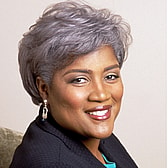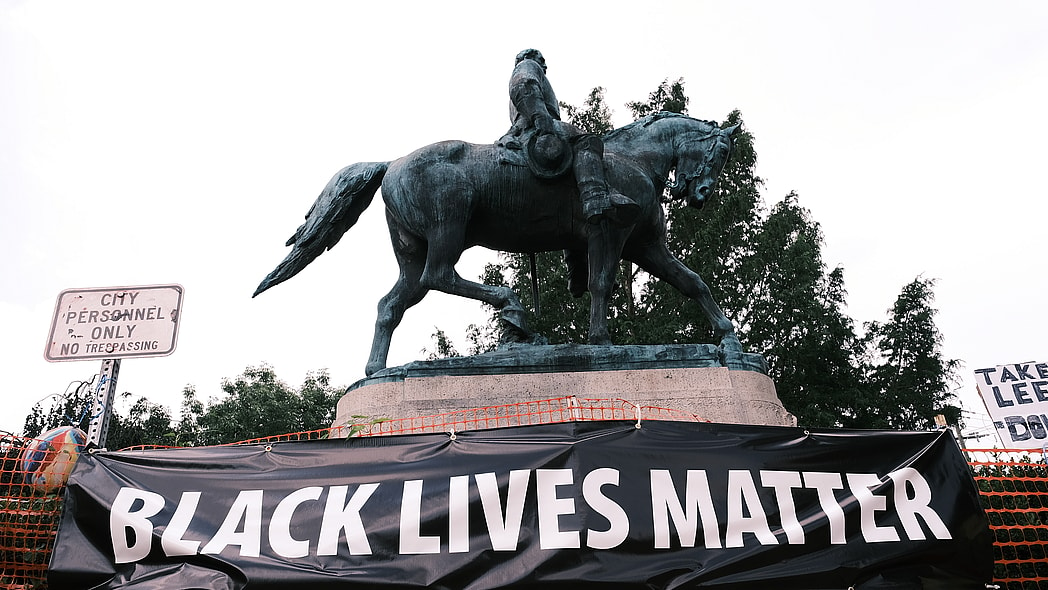Editor’s note: The following article is an op-ed, and the views expressed are the author’s own. Read more opinions on theGrio.
This year, the theme of Black History Month, now in progress, is Black Resistance. Not just resistance in years past, but resistance today and tomorrow.
Understanding the need for resistance and how to resist effectively requires knowledge of Black history and its integral role in American history. Yet even today, right-wing extremists are continuing the centuries-old revisionism that has painted a false picture of horrific white racism while suppressing and distorting Black history — minimizing Black suffering, downplaying Black achievements and portraying Black Americans in an overly negative light.
We’ve seen this whitewashing of history most recently and prominently in the state of Florida, where Republican Gov. Ron DeSantis — a likely candidate for his party’s presidential nomination next year — recently defended his state’s refusal to allow Florida students to enroll in an Advanced Placement African American Studies course.
DeSantis claimed that the class “lacks educational value,” calling it “radical” and stating that Florida wants “education, not indoctrination.” The governor earlier absurdly denied the existence of systemic racism, calling the concept “a bunch of horse manure.”
The College Board, which creates Advanced Placement courses that high school students can take for college credit, has since removed some of the most contentious elements of the course and Florida officials are reviewing the revisions. (The College Board denies that Florida’s objections prompted it to revise the course.)
Unfortunately, DeSantis isn’t an outlier among Republican governors and other elected officials around the nation who are also seeking to censor and distort what children are taught about Black Americans and others by banning lessons and books that paint a true picture of our country, warts and all. This amounts to educational malpractice. We must resist it.
But what exactly is Black Resistance?
Black Resistance means working to eradicate the systemic racism (yes, Gov. DeSantis, it really exists) that has infected America since enslaved Africans were first brought here some 400 years ago. It means working to open the door to the American Dream wider so Black people can, at last, achieve the equality, equity, inclusion and justice long denied to us. It means leaving no one behind so we can all thrive in a multiracial society.
And Black Resistance is a call for wiping out the big disparities in income, family wealth, the unemployment rate, education, homeownership, health disparities, career advancement and other areas dividing Black Americans from others. It’s a call for ending the discrimination that has made far too many Black people the victims of police brutality and killings and led to the mass incarceration of Black men.
Black Resistance also means demanding and exercising our voting rights and participating in the political system and government as volunteers, staffers, candidates and elected officials to make change happen. When we are denied our voting rights or fail to vote, many politicians ignore our needs. The ballot is our most powerful tool to change America for the better.
Black Resistance is not a call for directing hatred at people of other races. The abolition of slavery and the many advances of the civil rights era were achieved in partnership with allies from other races who were strongly committed — and in some cases suffered beatings and lost their lives — to seeking justice for Black Americans.
Nor is Black Resistance a call for violence. The Rev. Dr. Martin Luther King Jr. correctly said on accepting the Nobel Peace Prize in 1964: “Violence as a way of achieving racial justice is both impractical and immoral.” Dr. King preached nonviolence all his life until a white gunman assassinated him in 1968.
As we saw with Dr. King’s murder, the 2017 neo-Nazi and Ku Klux Klan rally in Charlottesville, Va., the Jan. 6, 2021 insurrection at the U.S. Capitol, and in countless mass shootings (including some targeting Black people), violence is employed most often by right-wing white extremists. This was confirmed by Attorney General Merrick Garland and Homeland Security Secretary Alejandro Mayorkas, who said at a Senate hearing last year that violent white supremacists pose the greatest domestic threat facing the U.S.
Black History Month grew out of Negro History Week, which was launched in 1926 by Black historian Carter G. Woodson, the son of formerly enslaved parents. Woodson created the Association for the Study of Negro Life and History (now the Association for the Study of African American Life and History) and went on to serve as a professor and dean at Howard University. The celebration of Black Americans became Black History Month in 1976.
Devoting a month to highlighting Black history is a good thing, as are courses about the Black experience in America. But I look forward to the day when the study of Black history is more fully incorporated into American history courses at all grade levels because Black history is American history.
Telling the truth about Black history should not be a partisan issue. All Americans should embrace the view of President Ronald Reagan — a Republican long revered by many in his party — who said in his proclamation designating Black History Month in 1986:
“The foremost purpose of Black History Month is to make all Americans aware of this struggle for freedom and equal opportunity. It is also a time to celebrate the many achievements of blacks in every field, from science and the arts to politics and religion. It not only offers black Americans an occasion to explore their heritage, but it also offers all Americans an occasion and opportunity to gain a fuller perspective of the contributions of black Americans to our Nation. The American experience and character can never be fully grasped until the knowledge of black history assumes its rightful place in our schools and our scholarship.”

Donna Brazile is an ABC News Contributor, veteran political strategist, an adjunct professor at Georgetown University, and the King Endowed Chair in Public Policy at Howard University. She previously served as interim Chair of the Democratic National Committee (DNC) and of the DNC’s Voting Rights Institute. She managed the Gore campaign in 2000 and has lectured at more than 225 colleges and universities on race, diversity, women, leadership and restoring civility in politics. Brazile is the author of several books, including the New York Times’ bestseller “Hacks: The Inside Story of the Break-ins and Breakdowns That Put Donald Trump in the White House.” @DonnaBrazile
TheGrio is FREE on your TV via Apple TV, Amazon Fire, Roku, and Android TV. Please download theGrio mobile apps today!


